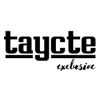Unilever, Tesco, Nestlé, Marks & Spencer and Conagra are the most proactive companies in preparing for the rapid expansion of the $19.5 billion alternative protein market, according to a report by FAIRR.
FAIRR, a global investors' network dedicated to mitigating risks from animal-based food, issued the report because it sensed the risks associated with animal-based proteins for the sector demanded greater attention.
"Given a growing consumer trend toward healthier food, more sustainable food, consumers demanding more transparency with how food is being produced, we believed this was going to create a gap in the market," said Aarti Ramachandran, head of research and engagements at FAIRR. "It was important for global food companies to start really thinking about what protein composition looks like...We sensed that this was an issue that required greater engagement from the shareholders of these companies."
Since all 25 companies evaluated in the report are publicly listed, Ramachandran said the likely primary driver that led FAIRR members to fund the report was their own potential investment.
The group studied everything from companies’ R&D investments to consumer engagement to gauge how they plan to reshape their product portfolios.
“We don’t prescribe what companies need to do,” Ramachandran said. “From an investor perspective, I think investors are just looking to understand how companies are thinking about these risks and factoring them into their own business-growing decisions.”
The five proactive companies are both addressing the environmental risks of animal-based products in their supply chains and expanding their protein portfolios, according to the report. Sixteen companies got the middle ranking of “active,” while four — Amazon (Whole Foods), Hershey, Costco and Saputo — scored the bottom “reactive” ranking.
To be classified as proactive, the report says, companies must have a developed strategy for a sustainable protein portfolio, as well as recognize the environmental risks that come with a heavy reliance on animal-based products — livestock supply chains account for 14.5% of global greenhouse gasses, according to the Food and Agriculture Organization of the UN. Unilever, Tesco and Nestle are all addressing emissions linked to their supply chain, with Tesco aiming to reduce greenhouse gas emissions 60% by 2025.
"It was important for global food companies to start really thinking about what protein composition looks like. ...We sensed that this was an issue that required greater engagement from the shareholders of these companies."

Aarti Ramachandran
Head of research and engagements, FAIRR
Top-ranked companies also have broadened their plant-based product offerings. Ramachandran said they were also the most proactive in communicating their initiatives to FAIRR.
Just's egg alternative Just Egg, plant-based products from Beyond Meat and Impossible Foods, and Danone and Chobani’s plant-based yogurt offerings were highlighted for helping companies secure their share of an increasingly crowded and disruptive market.
The report says Costco is at highest risk for losing its grasp on the growing industry because it is one of the largest meat buyers in North America. The company has significant investments in the meat supply chain, and though it introduced a popular plant-based burger last year, it isn’t clear how the retailer accounts for climate change risks to agriculture and livestock.
According to the report, private-label brands give retailers the opportunity to expand their selection of affordable plant-based options. More than 87% of retailers studied in the report have ramped up their own-brand plant-based offerings to compete with outside brands.
Nestlé has shown the most initiative in the sector, the report says. The Swiss company acquired plant-based brands Sweet Earth and Terrafertil. It partners with Rabobank and startup accelerator RocketSpace on the Terra Food and Agtech Accelerator program, which coaches innovative food and agriculture startups. The CPG brand also has plans to sell a plant-based burger at retail later this year.
The findings may be a good warning sign for companies that are lagging to catch up with the emerging industry, like Amazon, which owns Whole Foods. Though the company's consumer engagement score was in line with most other companies, the report said it lacked strategy and received a low score on its product portfolio.













